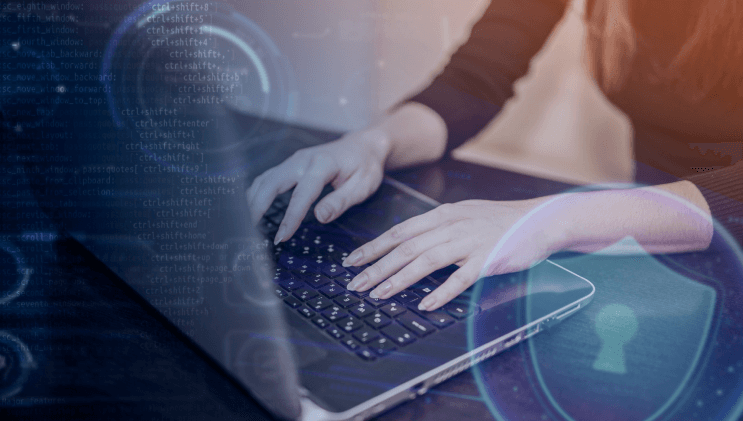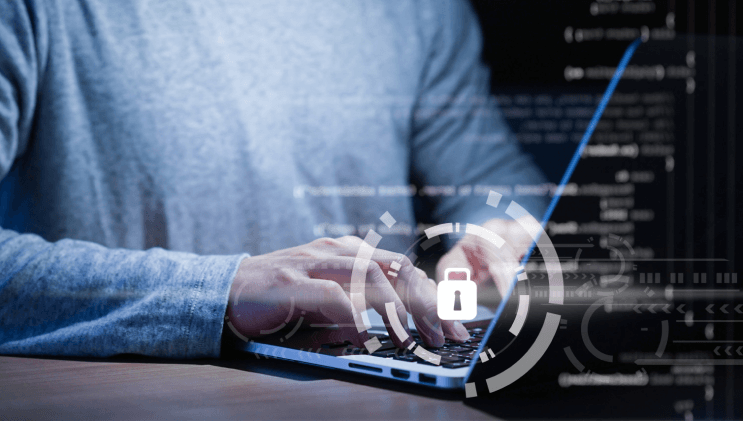A Small Business Guide To Cybersecurity: Investment That Pays Off
14 February 2024
6 Mins Read

toc impalement
Small businesses are at high risk of cyber attacks due to their valuable information, such as customer records, financial data, and intellectual property. A data breach can lead to severe financial losses, a damaged reputation, and interrupted operations, which can be devastating for small firms. Studies reveal that many small businesses that fall victim to hackers shut down within 6 months.
More and more business owners are asking, do I need a VPN to protect my employees and company? It’s a reasonable question because even small security mistakes, for example – falling for phishing emails or neglecting system updates – can have severe consequences. Noncompliance with laws like GDPR can result in hefty fines, making it harder for small businesses. Hackers often target small companies with ransomware, assuming they will pay.
By investing in cybersecurity, you can build trust, lower risks, and have the freedom to innovate without fear, ensuring your business’s exponential growth.
This article is your step-by-step guide to making a strong protection plan. We’ll look at real-world solutions and give you the information you need to turn cybersecurity from a scary task into a strong growth generator.
How Does Cybersecurity Play A Vital Role in Maintaining Data Safety?

There are several ways by which Cybersecurity plays a vital role in maintaining the data safety of your business data. If your business data is unsafe, then the credibility of your brand in the market goes down. So, always keep track of your data in a proper manner.
1. Ensures Data Protection
Cybersecurity measures, such as encryption, help protect data from unauthorized access. Encryption converts data into a secure format that can only be read with the correct decryption key, ensuring that even if data is intercepted, it remains unreadable.
In this digital age, data is king, and it can help your business grow at a faster pace. Try to follow the validity of the data to make things happen in your favor. Without knowing the fact things can become tougher for you.
2. Prevents The Chances Of Data Breaches
Cybersecurity helps prevent data breaches by identifying and mitigating vulnerabilities in computer systems and networks. This includes implementing strong access controls, regular security updates, and security best practices to reduce the risk of unauthorized access.
In this digital age, data is gold. If the phishing process starts, then it will kill the viability of your data. Ethical hackers will allow you to keep the data safe from the clutches of the hacker. You need to identify the facts with complete ease.
3. Helps In Detection Of Threads
Cybersecurity tools and technologies help detect and identify threats to data security, such as malware, viruses, and suspicious activities. By monitoring network traffic and behavior, cybersecurity systems can detect and alert organizations to potential threats before they cause harm.
Thread detection plays a vital role in your data protection. This can boost the chances of data safety. Thread detection will offer ethical hackers the signals of hacking threats. Thus it will reduce the chances of data theft to a considerable extent.
4. Incident Response
In the event of a data breach or a cyber attack. The application of the cyber security plays a critical role here. Most of the time, this includes the breach and identifying the cause to prevent the chances of future attacks. You need to identify the facts; you must not make things happen on the wrong end.
The incident response can help you to keep the data in proper order. Without knowing the facts, things can become too difficult for you.
5. Compliance & Regulation
Cybersecurity helps organizations comply with data protection regulations and standards. By implementing cybersecurity best practices, organizations can demonstrate their commitment to protecting data and avoid legal and financial penalties for non-compliance.
Maintaining compliance with the regulations things can make it easier for you to reach your objectives with ease. This can boost the chances of your brand value to a considerable extent. Try to make things happen in your way.
6. Protection Of Reputation
Data breaches and cyber attacks can damage an organization’s reputation and erode customer trust. Cybersecurity helps protect against these risks by safeguarding data and ensuring that customers can trust their information is secure.
Maintaining the protection of the reputation is essential for your business development. Once you follow the correct process, things can become easier for you. This can boost the scope of your brand value to a great extent.
Building Your Cybersecurity Foundation

Now that we know how dangerous cyber-attacks are and how they might affect small businesses, let’s focus on building a strong cybersecurity framework. These simple steps are very important for keeping your business safe and private info safe.
- Create strong and unique passwords for each account. Avoid using easy passwords like “password123”. Use a combination of letters, numbers, and symbols to make your passwords strong. It’s recommended to use a password generator tool to create and securely store your passwords. Also, enable multi-factor authentication (MFA) whenever possible, which offers an extra layer of cybersecurity by ensuring a secondary verification step, such as a code sent to your phone in addition to your password. This significantly reduces the risk of unauthorized access, even if your password is compromised.
- Keep your systems updated. Install the latest security patches on operating systems, software, and apps regularly to prevent hackers from exploiting security holes.
- Make regular backups of important data. Store copies on portable drives or in the cloud to ensure a clean copy is available for recovery in case of system failure or hacking. Consider setting up automatic backups for convenience and reliability.
- Train your staff to be cybersecurity savvy. Human error accounts for over 90% of security breaches. Teach your staff how to spot phishing scams, stay away from dangerous links and attachments, and report anything that seems fishy. Provide regular training to keep their skills up-to-date.
- Use VPNs for secure remote access. VPNs create a protected tunnel between remote devices and your company network, ensuring the safe transmission of data over the internet. They also allow workers to access company resources from public Wi-Fi or unsecured networks, minimizing the risk of data theft. Moreover, VPNs provide access control, allowing only authorized individuals to view private information.
Long-Term Cybersecurity Strategies
To ensure long-term cybersecurity, you need to be aggressive yet flexible. Here are some easy tactics that work:
- Regularly evaluate your network, systems, and data to identify and plug security holes before a breach occurs. Use tools to test for security vulnerabilities and malware.
- Have a clear plan in place for handling cyberattacks which includes data breach notification, containment and mitigation, investigation and recovery, and post-incident analysis to strengthen future defenses.
- Stay up-to-date on security threats and best practices. Follow trustworthy security sources for updates and check for user reviews of products you choose, like this VPN comparison table.
- Consider talking to safety experts for customized security solutions, advanced tools, and managed security services.
- Consider using advanced VPN features for extra safety. Include Double VPN for encrypting data twice, Split Tunneling for better performance and control, and Zero-Knowledge Servers for improved privacy.
Before adding these features, think about how hard they will be to use and how much they will cost.
Conclusion
For a small business, cybersecurity may seem like a big expense. But keep in mind that it’s not just about the cost – it’s also about peace of mind and long-term safety. As you read this guide and put the strategies it talks about into action, you’ll be protecting your important data, image, and finances.
The good news is that you don’t need to learn some things about safety right away. Start with simple things like making sure employees know how to use strong passwords and making regular backups. Taking these easy steps can make it much less likely that hacking will happen to you. As your business grows, you might want to look into more advanced options and get help from professionals.
Remember that spending money on protection is not a waste; it’s an investment in your future. You need to do this to unlock growth, earn your customers’ trust, and make sure your business does well in the constantly changing digital world. So take the first step today to protect your assets. With the peace of mind that comes with strong protection, your small business will grow.
Additional Reading:


















Comments Are Closed For This Article